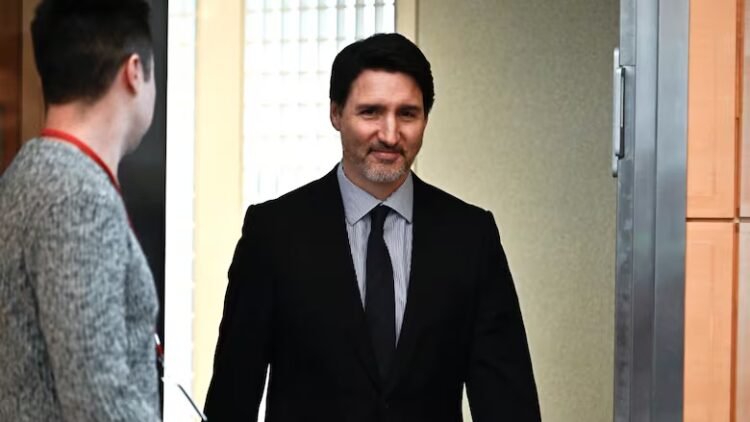Canadian Prime Minister Justin Trudeau announced on Monday, January 17, that he is stepping down as the leader of the Liberal Party. However, he will continue to serve as Prime Minister until the party selects a new leader.
Trudeau made this announcement during a press conference, citing increasing internal pressure from fellow party members in Parliament. He stated, “It has become clear to me that due to internal divisions, I cannot lead the Liberal Party into the next Canadian election.”
He emphasized that his decision was guided by a commitment to the interests of Canadians and the preservation of democracy, saying, “I do not shy away from a fight, especially one as critical as this for our party and our country. But I am stepping aside because the well-being of Canadians and the health of our democracy are what matter most to me.”
Parliament to Be Suspended Until March
Trudeau also announced that Parliament will remain suspended until March 24. This proposal, which he has submitted to Canada’s Governor General, is aimed at giving the Liberal Party sufficient time to select a new leader.
Declining Popularity and Recent Crises
Trudeau, who has served as Prime Minister since November 2015, was elected for three consecutive terms, making him one of Canada’s most experienced leaders. However, over the past two years, his popularity has waned due to rising costs of living and a housing shortage.
Polls suggest that the Liberal Party, under Trudeau’s leadership, is on track for a significant loss in the upcoming election. The Conservative Party, led by Pierre Poilievre, has seen a substantial rise in popularity, currently leading the Liberals by at least 24 percentage points.
Internal Tensions and Freeland’s Resignation
One of the key factors driving Trudeau’s resignation is growing discord within the Liberal Party. Last month, Trudeau attempted to demote Chrystia Freeland, the Finance Minister and one of his closest allies. Instead of accepting the demotion, Freeland resigned and accused Trudeau of engaging in “political maneuvering.”
In her resignation letter, Freeland wrote that Trudeau had prioritized actions that served the party’s interests over what was best for the country. Her departure sparked widespread criticism among Liberal lawmakers and heightened calls for Trudeau to step aside.
Challenges Ahead for the Next Election
The next Canadian federal election is expected to take place by the end of October. Opposition parties, including the Conservatives, have pledged to challenge Trudeau’s government at the earliest opportunity. With Parliament suspended until March, the first potential vote of no confidence may not occur until May.
Trudeau expressed confidence that the Liberal Party, under new leadership, will present its values and ideals in the next election. He added, “I look forward to witnessing how our party charts its course with new leadership.”
External Economic and Political Pressures
While Trudeau contends with internal challenges, external pressures, particularly from U.S. President-elect Donald Trump, have further complicated matters. Trump has previously threatened to impose heavy tariffs on Canadian goods and has even mockingly referred to Canada as “the 51st state of America.”
Trudeau reassured Canadians that his government would work through diplomatic channels to protect the nation’s economic and political interests against such threats.
Trudeau’s Legacy in Canadian Politics
As the son of Pierre Trudeau, a former Canadian Prime Minister, Justin Trudeau has played a pivotal role in shaping Canada’s modern political landscape. During his tenure, he sought to center the Liberal Party’s values in his government’s policies.
However, in recent years, his leadership faced criticism over economic management, foreign relations, and internal party dynamics.
By stepping down as leader of the Liberal Party, Justin Trudeau is closing a chapter in Canadian politics, but his legacy—both celebrated and controversial—will remain a significant part of the country’s history.

 English
English



























































